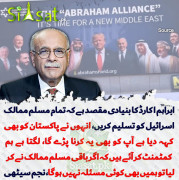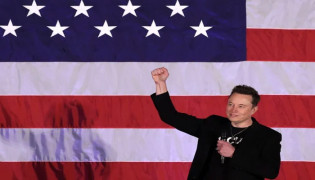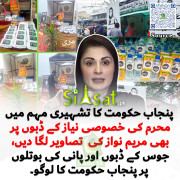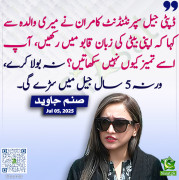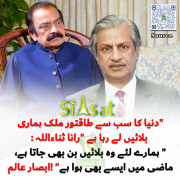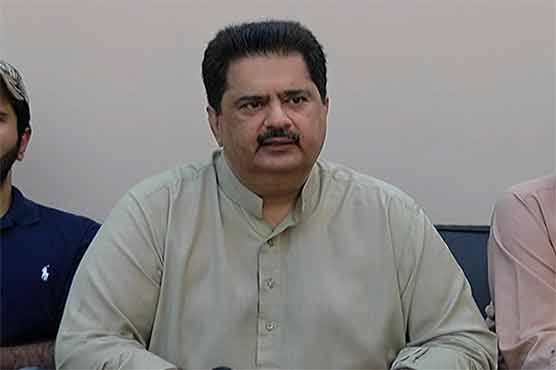http://www.bbc.co.uk/news/world-middle-east-19812482
October 2012 Last updated at 16:14 GMT
Iran police clash with protesters over currency crisis
Riot police in Iran have clashed with protesters in the capital over sharp falls in the currency, the rial.
Tear gas was used to disperse the demonstrators, some of whom were setting fire to tyres and rubbish bins. There were many arrests, reports say.
Eyewitnesses told the BBC that scores of people gathered outside the central bank, calling for the governor to stand down, chanting anti-government slogans.
The rial has plummeted to record lows against the US dollar in recent days.
Money dealers were joined by traders from the nearby central bazaar, reports say.
Amateur video footage posted online appeared to show hundreds of people marching towards Iran's central bank.
Eyewitnesses told BBC Persian that riot police fired tear gas to disperse the crowds.
Reports say many shops in the central Grand Bazaar have brought down their shutters in sympathy with the demonstrators.
Traders are angry at the lack of direction from the government in the crisis, which they say has led to more instability in prices and made trading almost impossible, according to commentators.
Viewers of BBC Persian television in Iran reported that authorities began jamming the channel's signals on two satellites after the London-based Persian-language channel reported the Tehran protests.
ArrestsThe head of Tehran's bazaar unions, Ahmad Karimi-Esfahani, said shopkeepers had not opened their businesses as they were "worried about security" but he expected them to reopen on Thursday.
A protest outside the bazaar started with a small group and then grew, he told the Iranian Labour News Agency (Ilna).
One eyewitness, who gave his name only as Omid, told the BBC that the Sabze Maydon area within the bazaar was closed down and some shop windows were smashed.
He said the government had closed the currency exchange shops, hoping to curtail the turmoil.
A senior Iranian police commander confirmed to Ilna that "a limited number of people protested in front of the bazaar," but he said the bazaar was not closed.
Hundreds of police are also reported to have rounded up and arrested illegal money changers in the capital.
Tehran's bazaar is traditionally the biggest financial ally of the Iranian regime. The bazaar is said to have bankrolled the 1979 Islamic revolution.
The political core of the bazaar is the Islamic Allied Society or Motalefeh, a political group loyal to Iran's Supreme Leader Ayatollah Ali Khamenei.
The protests were clearly targeting President Ahmadinejad's government, accusing it of mismanagement and inefficiency in curtailing Iran's currency crisis, says BBC Persian's Amir Paivar.
President Ahmadinejad has blamed Western sanctions for the fall in the rial, saying they amounted to an economic war.
However, many Iranians accuse him of financial mismanagement.
US officials say the slide reflects the success of US economic sanctions targeted at Iran's controversial nuclear programme.
Meanwhile, Ayatollah Khamenei said in a speech that the Iranian people would never submit to pressure from abroad.
Iran would put this crisis behind it, he was quoted by Iranian news agencies as saying.

BBC 2012 The BBC is not responsible for the content of external sites. Read more.
My Note: Theeffects of economic sanctions on a Oil producing country cant be overstated. Iran has to import foodstuff and other essential from neighbouring countries, so need foreign reserves to pay for it.
Furthermore Banks have been pressured to stop any transaction with Iran. This is freezing their economy.
Obama resisted the Israeli pressure for a direct military intervention which would have been disastrous and now wants to "soften" Iran up with this Economic war.
A entire country can be deindustrialised and hollowed out if this is continued for a couple of years. Just think of the sanction on Iraq which destroyed the country and lead to the death of a 1/2 million children.
It seems the West has prepared a similar strategy for Iran.
Till now Iran has amassed $100 Billion USD so it is better prepared for the crisis. But recently the Irani Riyal has been losing value. This hyperinflation is causing unrest on ground.
Its in Pakistan interest to help the Irani people at this time, cause lets face it we are next. Compared to the Pressler amendment of 90's the next round of sanctions after the Americans begin to leave Afghansitan will be severe.
The "justification" for them already exist: Terorism, Nuclear Proliferation, Human rights etc etc.
We are already close to a current account crisis as it is.
Its important to learn from how the Iranis tackle this crisis.
We can renogiate our deals with them and exchange the wheat for Oil. This will benefit both our countries.We should also work for a currency swap arrangement and let the Iranis use our Banking sector. We can also try to get the Turks onboard and revive RCD links.
I am not a fan of the Irani regime. Infact they havent missed an opportunity to stab Pakistan in the back over the years (Backing NA in Afghanistan prolonging civil war,Backing US Intervention in Afghanistan, Support in Bonn, Telling IAEA about AQ khan PK1 centrifuges, taking the credit for Regi etc,Forementing sectarianism at times etc)
But right now its in our interest to help them as a country. Cause in time we may be in a similar position. Most of these arrangement will equally benefit Pakistan.
However this is just wishful thinking as foreign policy planners could find their *** with both hands.
October 2012 Last updated at 16:14 GMT
Iran police clash with protesters over currency crisis
Riot police in Iran have clashed with protesters in the capital over sharp falls in the currency, the rial.
Tear gas was used to disperse the demonstrators, some of whom were setting fire to tyres and rubbish bins. There were many arrests, reports say.
Eyewitnesses told the BBC that scores of people gathered outside the central bank, calling for the governor to stand down, chanting anti-government slogans.
The rial has plummeted to record lows against the US dollar in recent days.
Money dealers were joined by traders from the nearby central bazaar, reports say.
Amateur video footage posted online appeared to show hundreds of people marching towards Iran's central bank.
Eyewitnesses told BBC Persian that riot police fired tear gas to disperse the crowds.
Reports say many shops in the central Grand Bazaar have brought down their shutters in sympathy with the demonstrators.
Traders are angry at the lack of direction from the government in the crisis, which they say has led to more instability in prices and made trading almost impossible, according to commentators.
Viewers of BBC Persian television in Iran reported that authorities began jamming the channel's signals on two satellites after the London-based Persian-language channel reported the Tehran protests.
ArrestsThe head of Tehran's bazaar unions, Ahmad Karimi-Esfahani, said shopkeepers had not opened their businesses as they were "worried about security" but he expected them to reopen on Thursday.
A protest outside the bazaar started with a small group and then grew, he told the Iranian Labour News Agency (Ilna).
One eyewitness, who gave his name only as Omid, told the BBC that the Sabze Maydon area within the bazaar was closed down and some shop windows were smashed.
He said the government had closed the currency exchange shops, hoping to curtail the turmoil.
A senior Iranian police commander confirmed to Ilna that "a limited number of people protested in front of the bazaar," but he said the bazaar was not closed.
Hundreds of police are also reported to have rounded up and arrested illegal money changers in the capital.
Tehran's bazaar is traditionally the biggest financial ally of the Iranian regime. The bazaar is said to have bankrolled the 1979 Islamic revolution.
The political core of the bazaar is the Islamic Allied Society or Motalefeh, a political group loyal to Iran's Supreme Leader Ayatollah Ali Khamenei.
The protests were clearly targeting President Ahmadinejad's government, accusing it of mismanagement and inefficiency in curtailing Iran's currency crisis, says BBC Persian's Amir Paivar.
President Ahmadinejad has blamed Western sanctions for the fall in the rial, saying they amounted to an economic war.
However, many Iranians accuse him of financial mismanagement.
US officials say the slide reflects the success of US economic sanctions targeted at Iran's controversial nuclear programme.
Meanwhile, Ayatollah Khamenei said in a speech that the Iranian people would never submit to pressure from abroad.
Iran would put this crisis behind it, he was quoted by Iranian news agencies as saying.

BBC 2012 The BBC is not responsible for the content of external sites. Read more.
My Note: Theeffects of economic sanctions on a Oil producing country cant be overstated. Iran has to import foodstuff and other essential from neighbouring countries, so need foreign reserves to pay for it.
Furthermore Banks have been pressured to stop any transaction with Iran. This is freezing their economy.
Obama resisted the Israeli pressure for a direct military intervention which would have been disastrous and now wants to "soften" Iran up with this Economic war.
A entire country can be deindustrialised and hollowed out if this is continued for a couple of years. Just think of the sanction on Iraq which destroyed the country and lead to the death of a 1/2 million children.
It seems the West has prepared a similar strategy for Iran.
Till now Iran has amassed $100 Billion USD so it is better prepared for the crisis. But recently the Irani Riyal has been losing value. This hyperinflation is causing unrest on ground.
Its in Pakistan interest to help the Irani people at this time, cause lets face it we are next. Compared to the Pressler amendment of 90's the next round of sanctions after the Americans begin to leave Afghansitan will be severe.
The "justification" for them already exist: Terorism, Nuclear Proliferation, Human rights etc etc.
We are already close to a current account crisis as it is.
Its important to learn from how the Iranis tackle this crisis.
We can renogiate our deals with them and exchange the wheat for Oil. This will benefit both our countries.We should also work for a currency swap arrangement and let the Iranis use our Banking sector. We can also try to get the Turks onboard and revive RCD links.
I am not a fan of the Irani regime. Infact they havent missed an opportunity to stab Pakistan in the back over the years (Backing NA in Afghanistan prolonging civil war,Backing US Intervention in Afghanistan, Support in Bonn, Telling IAEA about AQ khan PK1 centrifuges, taking the credit for Regi etc,Forementing sectarianism at times etc)
But right now its in our interest to help them as a country. Cause in time we may be in a similar position. Most of these arrangement will equally benefit Pakistan.
However this is just wishful thinking as foreign policy planners could find their *** with both hands.
Last edited:




